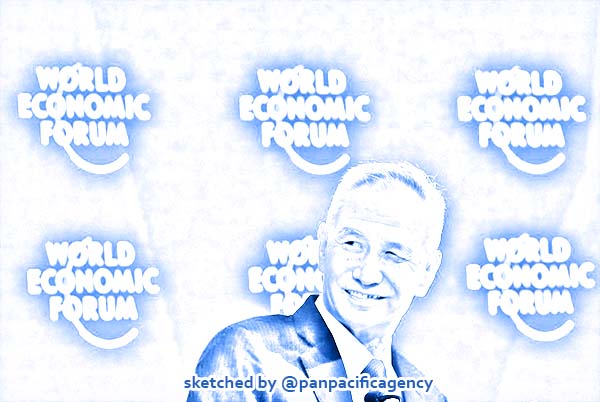China committed to maintaining Hong Kong’s status as an international financial hub: Vice-Premier Liu He

Liu He, Member of a Political Bureau of CPC Central Committee, smiles during the World Economic Forum (WEF) annual meeting in Davos, Switzerland January 24, 2018. REUTERS/Denis Balibouse. Sketched by the Pan Pacific Agency.
BEIJING, Jun 18, 2020, SCMP. Chinese Vice-Premier Liu He said on Thursday that Beijing is committed to maintaining Hong Kong’s status as an international financial hub, South China Morning Post reported.
In a rare statement by a senior Chinese leader on Hong Kong’s affairs, Liu said Beijing would safeguard the interests of foreign investors, in an apparent move to soothe concerns of businesses after China said in late May that it would introduce a national security law for the city.
“The central government will adhere to the policy of ‘one country, two systems’, and give support to Hong Kong as it plays the role of an international financial centre,” the vice-premier said in prepared notes to the Lujiazui Forum on Thursday, which was read out by China Securities Regulatory Commission chairman Yi Huiman.
“We will ensure that the interests of foreign investors in Hong Kong will be protected and Hong Kong’s long-term prosperity can be achieved.”
Liu’s remarks came amid mounting worries that the introduction of the security law could lead to an outflow of talent and capital from the city.
Liu did not elaborate the steps Beijing will take to shore up investor confidence and stabilise Hong Kong’s economy that has been hit hard by a year of anti-government protests, followed by the coronavirus pandemic earlier this year.
In late May, Beijing said it would introduce a new security law for Hong Kong, which will prohibit acts of secession, subversion, terrorism and foreign interference in the city’s affairs.
But opponents worry it will suppress dissent and harm Hong Kong’s long-cherished values such as freedom of speech, which would prompt an exodus of foreign capital and companies.
A previous attempt by the Hong Kong government to introduce a similar law in 2003 was met with a massive street demonstration attended by about 500,000 people.
The proposed law has also come under severe criticism from many countries.
The foreign ministers of the Group of Seven (G7) countries issued a rare joint statement on Wednesday “strongly urging the government of China to reconsider this decision”. The seven ministers and the EU’s top diplomat expressed “grave concern regarding China’s decision to impose a national security law on Hong Kong,” adding that “it would jeopardise the system which has allowed Hong Kong to flourish and made it a success over many years.”
On May 30, US President Donald Trump announced that the US government would begin eliminating special policy exemptions granted to Hong Kong, as the city was “no longer autonomous” from China. The US would also take steps to sanction Chinese and Hong Kong officials “directly or indirectly involved in eroding Hong Kong’s autonomy”, Trump said.
Under the legislation, the Hong Kong government is required to set up new institutions to safeguard national security and allow mainland agencies to operate in the city “when needed”.
There is a possibility that bill could be a last-minute addition to the agenda of the National People’s Congress Standing Committee (NPCSC), the country’s top legislative body, which meets on Thursday.